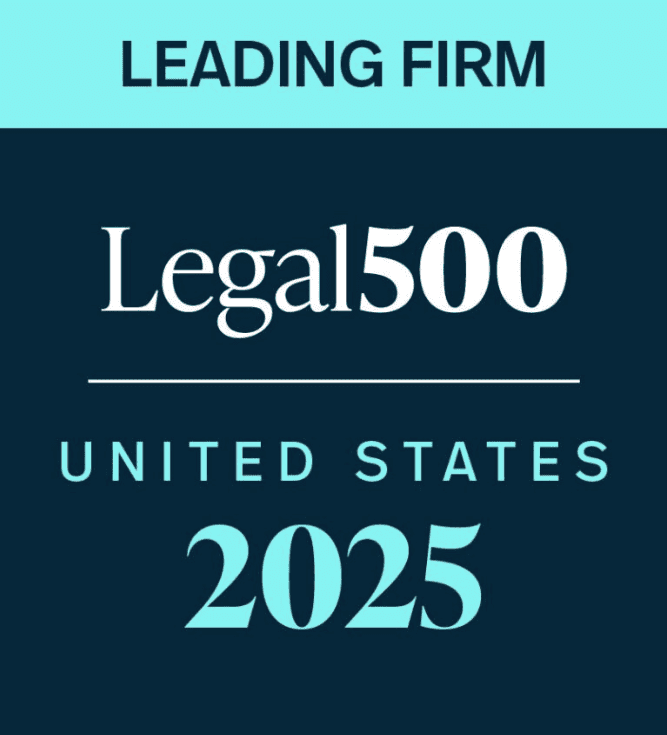If all had gone according to the Department of Labor’s (the “DOL’s”) plan, the final Retirement Security Rule issued on April 25, 2024[1] (2024 Fiduciary Rule) would currently be the law of the land, replacing the near fifty-year-old regulatory test (the “1975 Regulation”) defining an investment advice fiduciary. However, on two consecutive days this past summer, July 25 and 26, 2024, district courts in the Eastern District (Consumer Choice[2]) and Northern District (American Council[3]) of Texas granted plaintiffs’ motions to stay the 2024 Fiduciary Rule’s September23, 2024, effective date, which ostensibly stopped application of the rule and its accompanying regulatory package in its tracks.[4] These two cases are far from novel, resembling the 2018 Chamber case which ultimately led to the demise (vacatur) of the 2016 Fiduciary Rule regulatory package.[5]
Brushing up against the 60-day window to appeal, on September 20 and 21st, 2024, the DOL filed notices of appeal in both district court cases to the United States Court of Appeals for the Fifth Circuit. On October 2, 2024, the Consumer Choice court granted the parties’ request to stay proceedings until the DOL’s pending appeal is resolved. A day later, the American Council court granted an equivalent motion. On November 4, 2024, the cases were consolidated and the DOL filed its appellant brief with the Court by an extended deadline of December 20, 2024.[6]
Having successfully preserved its right to litigate the matter at the Fifth Circuit Court of Appeals, the DOL must have considered it had at least some paths to success in the face of clear and unrelenting Fifth Circuit precedent set forth in Chamber. Post election, given the political landscape on which the battle will be fought (or not fought at all), the 2024 Fiduciary Rule may be heading to purgatory once again.
“Defendants arguments are nothing more than an attempt to relitigate the Chamber decision.” Unreserved in its apparent displeasure with the 2024 Fiduciary Rule, the American Council court found that the Plaintiffs were “virtually” certain to succeed on the merits,” and that the “Defendants arguments are nothing more than an attempt to relitigate the Chamber decision.” Both district courts’ determinations on whether to stay the 2024 Fiduciary Rule looked to the traditional four equitable factors for injunctive relief under the Administrative Procedures Act: (1) plaintiff’s likelihood of success on the merits; (2) the threat of irreparable harm without a stay; (3) whether other interested parties will be irreparably injured by a stay; and (4) the public interest. Both Texas district courts found all four equitable factors weighed in favor of the plaintiffs, leading to a stop in implementing the 2024 Fiduciary Rule.
Texas Districts Courts Refuse to Roll Over on Rollovers. One of the key objectives of the 2024 Fiduciary Rule was to address the lack of fiduciary oversight surrounding advice related to rollovers of assets from ERISA-governed employer sponsored plans to IRAs. The DOL addressed this concern by seeking to codify one-time rollover advice as fiduciary investment advice in the regulation. For a more detailed discussion, see our article on the 2024 Fiduciary Rule. Unimpressed, the Consumer Choice court reminded the parties that the DOL had raised concerns[7] regarding rollover advice that escaped fiduciary scrutiny in its vacated 2016 Fiduciary Rule,[8] wherein it targeted the regular basis and primary basis requirements of the 1975 regulation “because the agency wanted to expand the meaning of ‘fiduciary’ to encompass ‘one-time transactions like IRA rollovers’.” The Consumer Choice court reasoned the DOL 2024 Fiduciary Rule design contained the same mistake that led Chamber to set aside the 2016 Fiduciary Rule, in that it captured transactions that did not involve “relationship[s] of trust and confidence,” which are the focus of ERISA. Specifically, the court explained, “it is ordinarily inconceivable that financial salespeople or insurance agents will have an intimate relationship of trust and confidence with prospective purchasers when making a one-time rollover recommendation” and, for that reason alone, the 2024 Fiduciary Rule fails.[9]
Citing Chamber, the American Council court emphasized there was an “important distinction” between insurance agents and brokers, in that insurance agents and brokers are compensated only for completed sales, whereas investment advisers are paid fees because they render advice. The court explained Chamber previously determined the statutory meaning of “fiduciary” codified the common law understanding as a relationship of trust and confidence between a fiduciary and their client, recognizing that “ERISA embraced the industry distinction between investment advice and mere sales conduct.” By tying fiduciary status to “advice for a fee,” American Council further explained that Congress intended that the purpose of the fee is for advice and not sales. In doing so, American Council attacked the 2024 Fiduciary Rule’s functional, context-based approach for defining an investment advice fiduciary, which fixed fiduciary status based on the characteristics of the parties in the advice-relationship and the circumstances under which the advice was given— stating, “ERISA does not define fiduciary in functional terms and instead restricts an investment-advice fiduciary to a common law understanding.”
Outcomes Matter and Relitigating Chamber is likely a Dead End. Consumer Choice recounted Chamber, stating that in 2016 the DOL made “no secret of its intent to transform the trillion-dollar market for IRA investments, annuities and insurance products” by expanding the definition of an investment advice fiduciary from the 1975 regulation and “exploiting an exemption provision into a comprehensive regulatory framework.”[10] As far as Fifth Circuit challenges go, it seems that no matter the method by which the DOL seeks to capture one-time transactions like roll overs through rulemaking, both American Council and Consumer Choice are quite clear that if the ultimate outcome is nothing more than an expansion of the definition of an investment advice fiduciary to encompass one-time advice related to rollover transactions, then Fifth Circuit precedent precludes such efforts. In addition, both courts rebuked the DOL’s attempts to, in their opinion, relitigate Chamber. The DOL seemingly believed the 2024 Fiduciary Rule would not be dispensed of so readily by the district court, perhaps believing it had a stronger hand with which to fight the battle at the appellate stage.
In any case, it remains dubious as to whether the DOL under the Trump administration will continue with its appeals, or simply withdraw. Depending on the approach, the new administration’s position could result in the 2024 Fiduciary Rule facing the same fate as the 2016 Fiduciary Rule, deepening the precedent of Chamber and dampening efforts to redefine “investment advice fiduciary” in the years to come.
If you have questions about the status of the 2024 Fiduciary Rule and its future, please contact us.
[1] Retirement Security Rule: Definition of an Investment Advice Fiduciary, 89 Fed. Reg. 32122 (Apr. 25, 2024)
[2] Fed’n of Ams. for Consumer Choice, Inc. v. U.S. Dep’t of Lab. (Consumer Choice), No. 6:24-CV-163-JDK, 2024 WL 3554879 (E.D. Tex. July 25, 2024).
[3] Am. Council of Life Insurers v. U.S. Dep’t of Lab. (American Council), No. 4:24-CV-00482-O, 2024 WL 3572297 (N.D. Tex. July 26, 2024).
[4] More specifically, pursuant to authority granted it under Section 705 of the Administrative Procedure Act, the court in Consumer Choice indefinitely stayed the effective date of the 2024 Fiduciary Rule and the amendment to Prohibited Transaction Exemption 84-24 to provide “complete relief” with the “less drastic remedy” during the pendency of the “suit and any appeal.” A day later, the court in American Council indefinity stayed the effectives dates of the 2024 Fiduciary Rule and PTEs 75-1, 77-4, 80-83, 83-1, 84-24, 86-128, and 2020-02.
[5] The DOL’s 2016 Fiduciary Rule vacatur was upheld by Chamber of Commerce v. U.S. Dep’t of Lab., 885 F.3d 360 (5th Cir. 2018).
[6] See Brief for Defendant-Appellant, Fed’n of Ams. for Consumer Choice, Inc. v. U.S. Dep’t of Lab., No. 24-40637 (5th Cir. Dec. 20, 2024). On the same day, AARP, AARP Foundation, and the Public Investors Advocate Bar Association filed an amicus curiae brief in support of the 2024 Fiduciary Rule. See Brief for AARP, et al. as Amici Curiae Supporting Defendant-Appellant, Fed’n of Ams. for Consumer Choice, Inc. v. U.S. Dep’t of Lab., No. 24-40637 (5th Cir. Dec. 20, 2024).
[7] The DOL had raised concerns that the 1975 Regulation was archaic and “unduly exclude[ed] a sizable portion of modern retirement investment advice” from ERISA’s fiduciary standard.” Defendant’s Response in Opposition of Motion to Stay, at 12 n.4, Consumer Choice, No. 6:24-CV-163-JDK, 2024 WL 3554879 (E.D. Tex. July 25, 2024).
[8] Definition of the Term “Fiduciary”; Conflict of Interest Rule—Retirement Investment Advice, 81 Fed. Reg. 20946 (Apr. 8, 2024).
[9] The Consumer Choice court also found that one time rollover and annuity recommendations exceed the DOL’s regulatory authority by “unabashedly” and “impermissibly conflating the basic division drawn by ERISA” between the fiduciary division imposed on Title I (employer sponsored plan) and Title II (IRA).
[10] The Consumer Choice court notes that industry professionals availing themselves of PTE 84-24 under the amended standard must adherer to care and loyalty obligations, which amounts to the “DOL once again “exploit[ing] an exemption provision into a comprehensive regulatory framework.”
[1] Am. Council of Life Insurers v. U.S. Dep’t of Lab. (American Council), No. 4:24-CV-00482-O, 2024 WL 3572297 (N.D. Tex. July 26, 2024).
[1] More specifically, pursuant to authority granted it under Section 705 of the Administrative Procedure Act, the court in Consumer Choice indefinitely stayed the effective date of the 2024 Fiduciary Rule and the amendment to Prohibited Transaction Exemption 84-24 to provide “complete relief” with the “less drastic remedy” during the pendency of the “suit and any appeal.” A day later, the court in American Council indefinity stayed the effectives dates of the 2024 Fiduciary Rule and PTEs 75-1, 77-4, 80-83, 83-1, 84-24, 86-128, and 2020-02.
[1] The DOL’s 2016 Fiduciary Rule vacatur was upheld by Chamber of Commerce v. U.S. Dep’t of Lab., 885 F.3d 360 (5th Cir. 2018).
[1] See Brief for Defendant-Appellant, Fed’n of Ams. for Consumer Choice, Inc. v. U.S. Dep’t of Lab., No. 24-40637 (5th Cir. Dec. 20, 2024). On the same day, AARP, AARP Foundation, and the Public Investors Advocate Bar Association filed an amicus curiae brief in support of the 2024 Fiduciary Rule. See Brief for AARP, et al. as Amici Curiae Supporting Defendant-Appellant, Fed’n of Ams. for Consumer Choice, Inc. v. U.S. Dep’t of Lab., No. 24-40637 (5th Cir. Dec. 20, 2024).
[1] The DOL had raised concerns that the 1975 Regulation was archaic and “unduly exclude[ed] a sizable portion of modern retirement investment advice” from ERISA’s fiduciary standard.” Defendant’s Response in Opposition of Motion to Stay, at 12 n.4, Consumer Choice, No. 6:24-CV-163-JDK, 2024 WL 3554879 (E.D. Tex. July 25, 2024).
[1] Definition of the Term “Fiduciary”; Conflict of Interest Rule—Retirement Investment Advice, 81 Fed. Reg. 20946 (Apr. 8, 2024).
[1] The Consumer Choice court also found that one time rollover and annuity recommendations exceed the DOL’s regulatory authority by “unabashedly” and “impermissibly conflating the basic division drawn by ERISA” between the fiduciary division imposed on Title I (employer sponsored plan) and Title II (IRA).
[1] The Consumer Choice court notes that industry professionals availing themselves of PTE 84-24 under the amended standard must adherer to care and loyalty obligations, which amounts to the “DOL once again “exploit[ing] an exemption provision into a comprehensive regulatory framework.”



